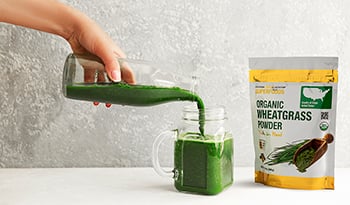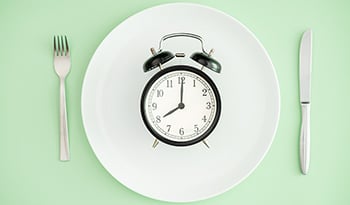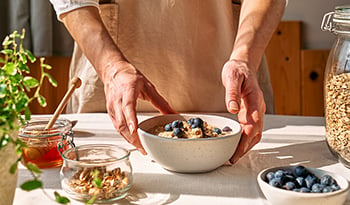História zdravotných prínosov kávy

Káva je jedným z najkonzumovanejších nápojov na svete, na druhom mieste po vode. Vo väčšine krajín sveta konzumentov kávy prevyšuje počet pijúcich čaj - výnimky zahŕňajú Čínu, Spojené kráľovstvo a Turecko, zatiaľ čo v Japonsku sú oba nápoje rovnako populárne. V mnohých kultúrach je dobre známe, že čaj, konkrétne zelený strom, má množstvo zdravotných výhod, ale káva podporuje aj dobré zdravie?
Odpoveď je pravdepodobne áno. V auguste 2017 uverejnil popredný vedecký časopis Annals of Internal Medicine dve veľké štúdie, ktoré v kombinácii zahŕňali viac ako 700 000 ľudí. Obe štúdie ukázali, že mierna konzumácia kávy mala významný vzťah s nižšou úmrtnosťou.
Predtým, ako sa však dostaneme do konkrétnych detailov, poďme diskutovať o histórii kávy a jej mieste vo svete.
Kávováreň pochádza z Etiópie a pôvodne bola objavená niekedy v 9. storočí. Legenda hovorí, že kozí pastier menom Kaldi objavil kávovník, keď jeho kozy zjedli červené bobule stromu. Potom sa zistilo, že kozy mali zvýšenú energiu a nespali počas noci, takže Kaldi hádal a otáčal sa.
Kaldi jedol ovocie a všimol si, že sa zvýšila jeho vlastná energia. Svoj objav sa podelil s miestnym kláštorom, kde mnísi uvarili ovocie, ale pri konzumácii mal bobuľový návar takú horkú chuť, že zvyšné ovocie hodili do ohňa. Keď sa však pokúsili vyprážať semená, vzduch naplnila sladká aróma a uvedomili si, že výsledný produkt sa dá použiť na prípravu chutného nápoja. Niektorí tvrdia, že Kaldiho objav urobil pre svet to, čo Steve Jobs urobil pre Apple.
Káva po objavení:
1414: Prvé kaviarne sa začínajú objavovať v Mekke v Saudskej Arábii. Desiatky tisíc moslimov, ktorí každý rok púšťajú do Mekky, šíria popularitu nápoja do svojich rodných miest - káva sa stala nesmierne populárnou v Jemene, kde ju nazývajú „arabica“.
1555: Káva sa dostáva do Istanbulu a kaviarne sa začínajú otvárať ďaleko a zďaleka. Káva sa stáva obľúbeným nápojom konzumovaným počas spoločenských stretnutí a obchodných stretnutí. Je cenený pre svoju schopnosť zvýšiť jasnosť myslenia a produktivitu.
1600: Ľudia v Benátkach v Taliansku pijú svoje prvé šálky kávy (legenda hovorí, že Benátčania boli prvými Európanmi, ktorí to vyskúšali).
1645: V Benátkach sa otvára prvá kaviareň a popularita kávy sa šíri, ale nie bez kontroverzie - mnohí katolícki kňazi určitý čas považovali kávu za „satanov nápoj“.
1605: Pápež Klement VIII. ochutnáva kávu poskytnutú benátskym obchodníkom a vyhlasuje ju za prijateľnú pre kresťanov (predtým bola považovaná za nápoj moslimov).
1660: Káva sa dostáva na pobrežie Francúzska a v roku 1665 sa dostala do Paríža.
1667: Káva bola predstavená obyvateľom Nemecka.
1700: Prvých sto rokov pije kávu iba vyššia trieda. Všeobecnejšie sa stáva populárnym koncom 17. storočia, keď si uvedomíme, že silná šálka kávy ráno môže pomôcť prebudiť sa, najmä po dlhej noci nadmernej konzumácie piva.
1723: Kávováreň je uvedená na karibské ostrovy a čoskoro sa vo väčšom meradle dostane do Severnej Ameriky.
1727: Portugalskí námorníci predstavili kávu do Južnej Ameriky - o tristo rokov neskôr sa Brazília stala jedným z popredných výrobcov kávy na celom svete.
1607: Kapitán John Smith prináša kávu do Jamestownu, keď príde do Severnej Ameriky
1773: Káva dostane svoju „veľkú prestávku“, keď sa obyvatelia Bostonu vzbúria proti dani kráľa Juraja na dovoz čaju z Anglicka, vyhodili britský čaj z lodí do prístavu a vyvolali neslávne známu Bostonskú čajovú párty. Popularita kávy rastie pri absencii čaju.
1903: V 20. storočí spotreba kávy dosahuje historické maximum a došlo k mnohým pokrokom. V tomto roku sa bezkofeínová káva zavádza pod názvom Sanka, ktorý pochádza z „sans kofeínu“ („bez kofeínu“).
1906: Na milánskom veľtrhu bol predstavený moderný espresso stroj, ktorý poskytuje nové možnosti varenia.
1971: V Seattli vo Washingtone sa otvára kaviareň Starbucks.
1990: Starbucks otvára svoje 84miesto .
2017: Na celom svete pôsobí viac ako 20 000 Starbucks, čím exponenciálne rozšírila popularitu kávy.
Keďže popularita kávy explodovala, denne sa spotrebuje viac ako 2,25 miliardy šálok kávy. Američania sú zodpovední za 400 000 000 šálok denne. Približne 1/3 svetovej kávy sa vyrába v Brazílii.
Aké sú výhody pitia kávy?
Kofeín je hlavnou zložkou kávy a vďaka tomu je populárny. Kofeín má stimulačný účinok, čo znamená, že dáva ľuďom viac energie a zvyšuje duševnú bdelosť. Káva tiež obsahuje polyfenoly, ktoré majú antioxidačné vlastnosti a sú považované za veľký dôvod, prečo káva poskytuje zdravotnú výhodu.
Štúdia z augusta 2017 v Annals of Internal Medicine zverejnila niekoľko dobrých správ pre spotrebiteľov kávy.
Prvá štúdia zahŕňala 185 855 Afroameričanov, domorodých Havajčanov, Latincov, Japonských Američanov a bielych.Šestnásťročná štúdia dospela k záveru, že tí, ktorí pili štyri alebo viac šálok kávy denne, mali o 18 percent menšiu pravdepodobnosť, že zomrú na srdcové choroby, rakovinu, pľúcne choroby, mozgovú príhodu, ochorenie obličiek a komplikácie cukrovky.
Druhá štúdia bola vykonaná v 10 európskych krajinách a zahŕňala 521 330 ľudí. Pacientom boli podané základné krvné testy a zdravotné dotazníky, ktoré boli sledované viac ako 16 rokov.
To, čo vedci zistili, je skvelá správa pre pijúcich kávu. Výhody boli najvýraznejšie, keď sa mierne pijúci, tí, ktorí pili 3 až 5 šálok denne, porovnávali s ľuďmi, ktorí nepijú kávu.
Konkrétne muži, ktorí pijú kávu mierne, mali takmer o 20 percent nižšiu pravdepodobnosť úmrtia, zatiaľ čo ženy mali o 10 percent nižšiu pravdepodobnosť úmrtia.
Ešte lepšie je, že mierne pijúci kávu mali takmer o 60 percent nižšiu pravdepodobnosť, že zomrú na choroby, ako je rakovina pečene a cirhóza pečene.
Štúdia tiež ukázala, že ženy, ktoré pijú mierne kávu, mali o 30 percent nižšiu pravdepodobnosť, že zomrú na mŕtvicu.
Ďalšie zdravotné prínosy kávy
- Znižuje riziko infarktu
- Znižuje zápal v tele
- Poskytuje výhody duševného zdravia a zvýšenú bdelosť
- Znižuje riziko cukrovky 2. typu
- Znižuje príznaky Parkinsonovej choroby
- Znižuje riziko samovraždy
- Znižuje zápal v pečeni
- Znižuje CRP, marker zápalu, u žien
Káva obsahuje triesloviny, ktoré môžu vyčerpať telo o horčík, vápnik, železo, vitamín B1 a zinok. Je potrebné zvážiť doplnenie multivitamínom , najmä ak vaša strava nie je bohatá na ovocie a zeleninu.
Aj keď štúdie nehodnotili používanie pridanej smotany a cukru konzumentmi kávy, používanie týchto ďalších „doplnkov“ by sa malo robiť striedmo. Navrhol by som, aby čierna káva mala viac zdravotných výhod ako káva plná cukru a smotany. Mnohé z predávaných ochutených krémov tiež obsahujú kukuričný sirup s vysokým obsahom fruktózy, o ktorom je známe, že má negatívne účinky na zdravie.
Ak je potrebné mlieko a cukor, odporúčam použiť ako alternatívne sladidlo mandľové, sójové alebo kokosové mlieko a 1-2 porcie surového trstinového cukru alebo stévie. K dispozícii sú sladidlá s príchuťou stévie, ktoré sú vhodnou voľbou.
Ak máte radi zelený čaj, zvážte pridanie čajového vrecka do šálky kávy. Na novú chuť si väčšine bude vyžadovať zvyknutie, ale kombinácia je bohatá na zdravie podporujúce antioxidanty .
Zdroje:
- http://www.huffingtonpost.com/2014/09/29/coffee-is-more-popular-than-tea_n_5901430.html
- https://www.roastandpost.com/coffee-encyclopedia/history/the-20th-century/
- http://www.smithsonianmag.com/arts-culture/the-long-history-of-the-espresso-machine-126012814/
- Gunter MJ, Murphy N, Cross AJ, Dossus L, Dartois L, Fagherazzi G a kol. Pitie kávy a úmrtnosť v 10 európskych krajinách: Medzinárodná kohortová štúdia. Ann Intern Med. 2017; 167:236-247. doi: 10.7326/M16-2945
- https://www.acs.org/content/acs/en/pressroom/presspacs/2012/acs-presspac-march-14-2012/why-coffee-drinking-reduces-the-risk-of-type-2-diabetes.html
- https://www.aan.com/pressroom/home/pressrelease/1096
- http://news.harvard.edu/gazette/story/2013/07/drinking-coffee-may-reduce-risk-of-suicide-by-50/
- http://www.cnn.com/2006/HEALTH/01/11/caffeine.smarter/
- Drug Muggers od Suzy Cohen, RpH Ktoré lieky okradnú vaše telo základných živín - a prírodné spôsoby, ako ich obnoviť - 15. februára 2011
VYHLÁSENIE: Toto Centrum zdravia a pohody neposkytuje diagnózu,...




























































































